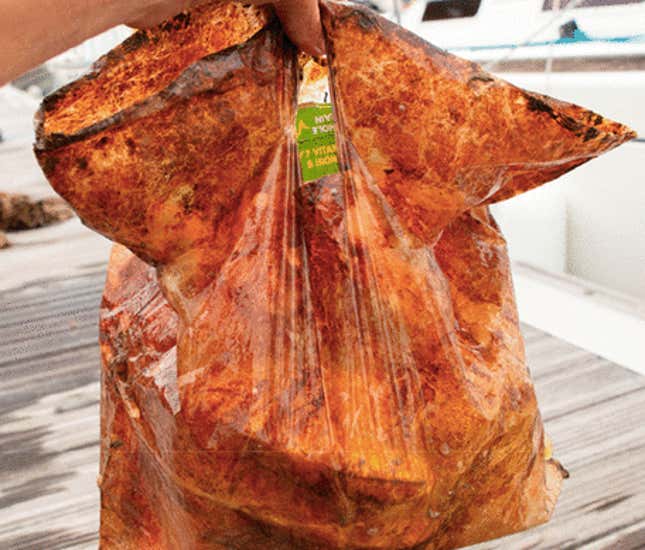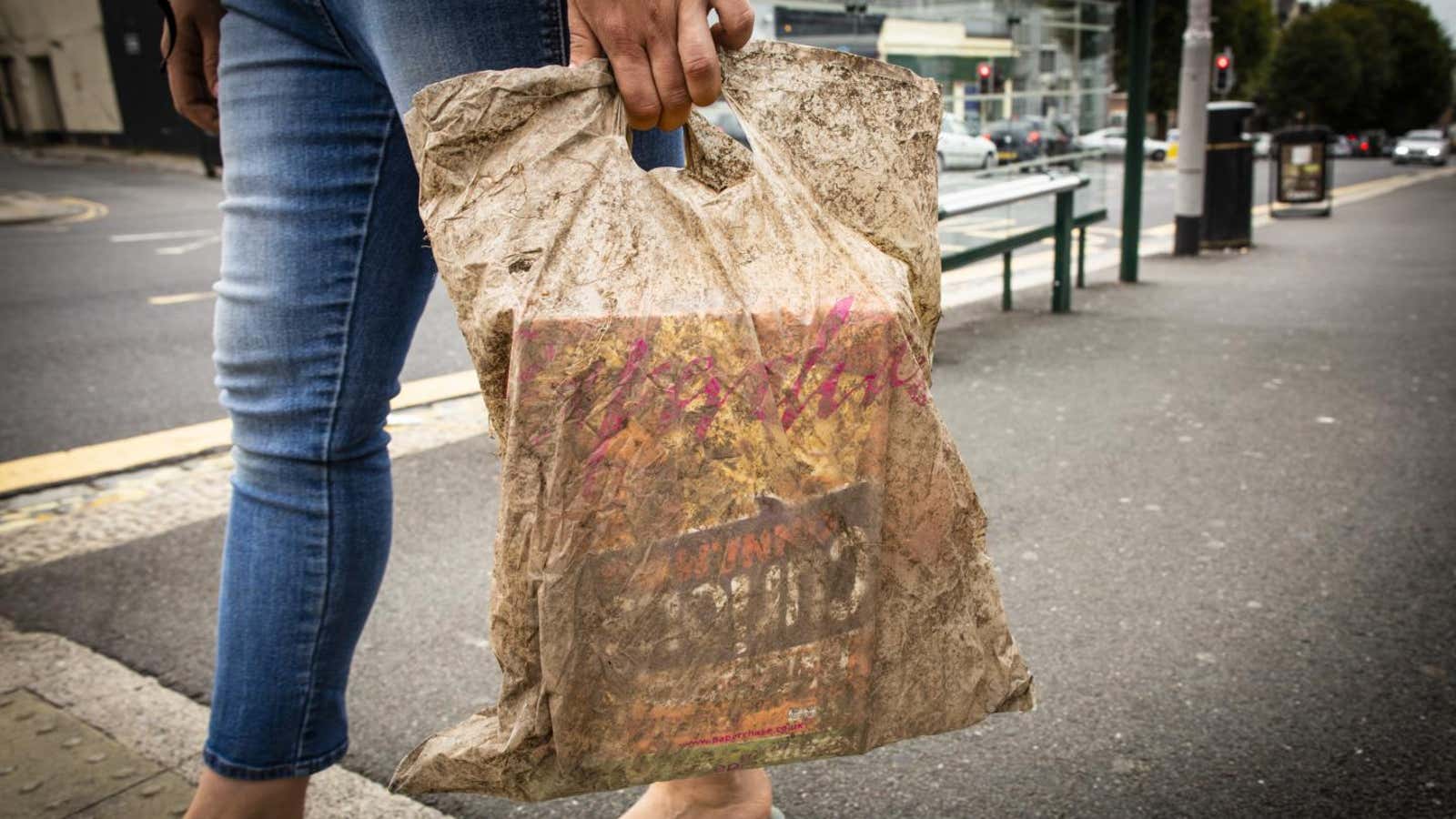At this point, images of plastic waste-filled landscapes have managed to reach and horrify much of the general public. Plastic bag bans are proliferating in response. Now, bags made from alternative, biodegradable plastics are popping up in retail stores with regularity.
But will those plastics actually biodegrade?
It seems that they might not, or at least not as quickly as people might think. For one thing, they often need very specific conditions to degrade at all. For example, most products labeled as “compostable plastic” degrade only in special heat-treated industrial composting facilities. They can’t degrade in a backyard compost pile, and they can’t be recycled, because they would contaminate the recycling stream. So if the community that is using compostable plastic doesn’t have an industrial composting facility, that object is going straight to the landfill, where it will probably last a very, very long time.
Now, a new paper is casting doubt on several types of “biodegradable” plastics. The paper, published April 28 in Environmental Science & Technology, found that three types of so-called biodegradable plastic bags didn’t degrade after three years in the environment. The team of researchers from the University of Plymouth in the UK tested compostable, biodegradable, and oxo-biodegradable plastic bags, which are often marketed with statements indicating they can be “recycled back into nature much more quickly than ordinary plastic” or that they are “plant-based alternatives to plastic.” (Oxo-biodegradable plastics are meant to be able to degrade by way of exposure to heat or light, which is seen as an advantage over other degradable plastics, which only break down due to exposure to microbes.)

The team subjected the bags to three conditions: They buried them in soil, left them outdoors to be exposed to the sun and weather, and submerged them in seawater for three years.
At the end of the three years, the only bag that fully disappeared was the compostable plastic bag submerged in seawater. The compostable bag buried in soil remained intact after three years, though it could no longer hold weight without tearing. All three bags left in the open air degraded into scraps, but did not disappear, which raised questions for the researchers about whether biodegradable bags could be contributing the the global microplastics problem.
Perhaps most surprising was that both the “biodegradable” and “oxo-biodegradable” bags could still hold a full load of shopping after three years in the marine environment or buried in soil (the researchers loaded them with 5 lbs, or 2.25 kg, worth of objects).
In both cases, the bags were presumably exposed to naturally occurring microbes, but they weren’t broken down. It is unclear how long it may have taken—or if the rate of break-down would have been faster than that of a conventional plastic bag.
It’s clear that none of these bags, with perhaps the exception of the compostable bag left at sea, are meaningfully solving the plastic pollution problem in the immediate future—at least not within three years. Of course, conventional plastic can last hundreds or perhaps thousands of years in the environment, so from that perspective, three years isn’t very long. But it is unclear how long it might take, and what if any standards are governing the labelling of bags that consumers are almost definitely expecting will not contribute to the global plastic pollution problem.
The eco-plastics industry is still in its infancy. In the US, the Federal Trade Commission puts out guidelines to try to hold the industry to some standards for when it can call itself “degradable.” The FTC writes:
It is deceptive to make an unqualified degradable claim for items entering the solid waste stream if the items do not completely decompose within one year after customary disposal.
Unqualified degradable claims for items that are customarily disposed in landfills, incinerators, and recycling facilities are deceptive because these locations do not present conditions in which complete decomposition will occur within one year.
Biodegradable plastic is a great idea in theory. For now, avoiding buying new plastic—biodegradable or not—might be the more prudent choice.
